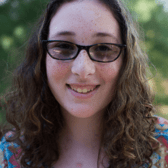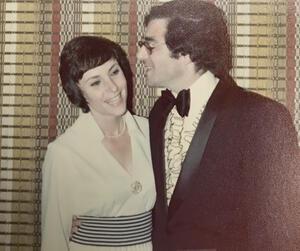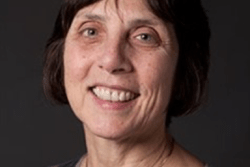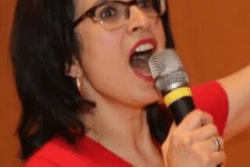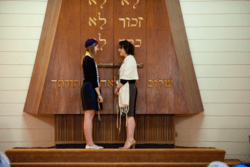The Last Question
For someone I spend a lot of time with, I was sadly ignorant of much of my grandmother’s past. My maternal grandma, Joan, grew up in Brooklyn, New York with an older and a twin sister, and her Judaism was largely cultural. Until a few weeks ago, I didn’t know where she went to college, why she chose Reform Judaism or how she felt about feminism. She simply never talked about those sorts of things. But when I sat down to interview her about her life, I learned much more than I had even hoped for.
At first our conversation felt reserved. She mostly told me things I already knew, joking about her notoriously eccentric twin sister and telling me about when my mom was a kid. She was especially excited to tell the story of when her grandmother immigrated to the United States. When I asked her about how her family celebrated Shabbat when she was growing up, she said, “the men mumbled in Hebrew and the women waited until we could eat.” I asked whether she was surprised when my mother became a rabbi, and about how women’s roles had changed throughout her life, but she offered only a simple proclamation: that women and men should be equal in life and in religion.
I was glad to have talked to her, but as we stood to depart, I couldn’t help but feel like we missed something. And then, Grandma Joan asked if she could say just one more thing. I told her that of course she could, and she proudly announced that her mother was a socially progressive woman who had encouraged her three female children to pursue their educations. “That’s wonderful,” I told her. I was merely making conversation when I asked her how she felt about her profession. Until her retirement, my grandma had been both a fourth grade teacher and a teacher for children with special needs. She told me that she had attended a women’s college, and that, at that time, she didn’t think about the role that gender played in her life. I asked if she had chosen to teach fourth grade, or if it was assigned to her. She jokingly said that it was assigned, but mentioned some funny stories she had about her time teaching.
But suddenly, out of this casual and even somewhat comical conversation, came a surreal moment of realization. I asked my grandma why she had become a teacher. “It’s just what you did,” she said. “There weren’t a lot of jobs for women.” So I asked her what she would have done if she could have been anything. “That’s a hard one,” she said. “That’s hard, I don’t know.” She didn’t have an answer, but she was clearly thinking about it, as if she had never thought about it before. As we parted ways and went along with our days, there was a forlorn look in her eyes, not quite regret, but a wistful consideration. I felt badly for possibly causing her confusion and anxiety, but I also hoped that I had given her the opportunity to really think about what she might have done if she hadn’t become a teacher, something she might never have considered otherwise. I also hope that this is something the two of us can talk about in the future.
This piece was written as part of JWA’s Rising Voices Fellowship.

